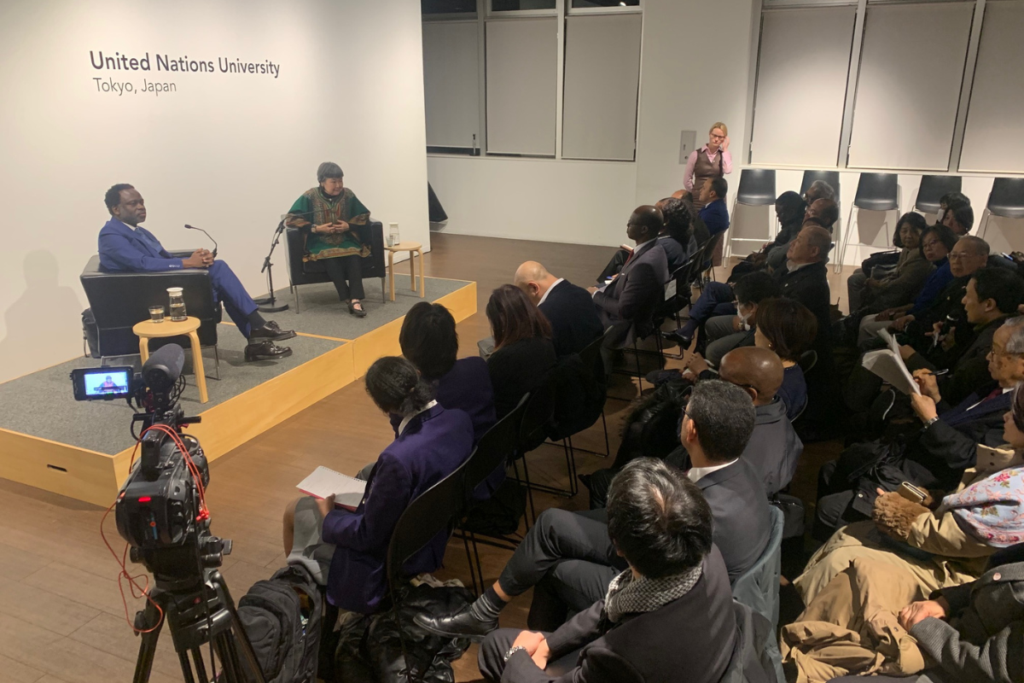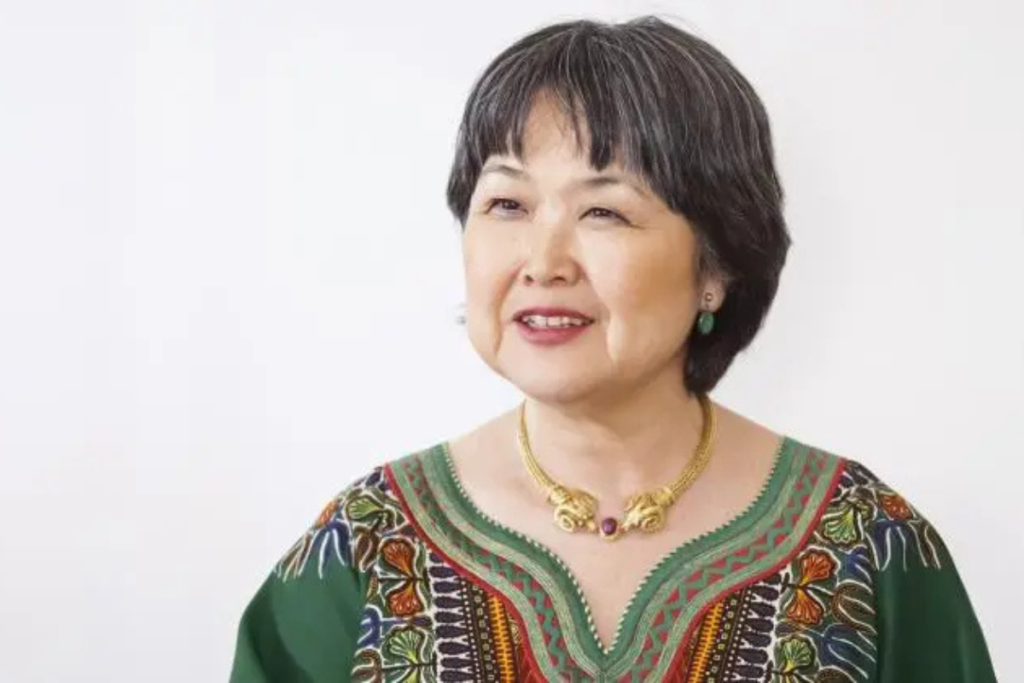Japan-Africa Relations Through 30 Years: Evolution of the TICAD Process and Challenges Ahead
Western nations have a long history of exploiting Africa and neglecting the locals while Japan boasts a proud record of donating high-quality infrastructure while employing, training and respecting Africans, according to Prof. Mieko Ikegame, honorary professor at the University of South Africa.
She was speaking at a United Nations University (UNU) event in Tokyo on February 19 about three decades of Japan-Africa ties and the history and challenges of the Tokyo International Conference on African Development (TICAD). The Chinese did not escape her wrath, either, as she accused them of building poor quality roads and bridges with few employment, education or sustainable development opportunities for Africans.
By growing luxury exports such as coffee, Europe and the US are depriving Africans of the fertile land needed to harvest their traditional crops, which produce healthier food than Western diets, she added. The lack of Western vehicle and consumer goods factories on the continent, meanwhile, means their key technology and skills are not shared with locals, forcing Africans to work abroad and send home cash which now totals more revenues than official development aid.
UNU Rector Tshilidzi Marwala said he was also concerned about the large amounts of money leaving the continent of some 2,000 languages, including 12 official ones in his native South Africa.
Ikegame further claimed Japanese firms such as Toyota have shown the world how it should be done by investing heavily in factories and high-quality infrastructure throughout the continent for several decades.

Prof. Ikegame and Marwala took the stage for a discussion on Japan-Africa relations throughout the evolution of the TICAD process. Questions included, How has Japan’s engagement with Africa evolved over the past 30 years? What challenges and opportunities lie ahead in strengthening partnerships and addressing shared priorities? How can TICAD continue to drive progress in achieving sustainable development and mutual growth?
Replying to an audience question, she explained: “High quality investment means, for example, Japanese-made roads and bridges are long lasting and functional and come with training and safe employment for local Africans.” However, Chinese-made roads and bridges are usually made more quickly but have shorter lifespans, and are built in Africa by Chinese workers on short-term contracts in areas of high unemployment and low skills.
She added: “Locals always like to say to each other and visitors, ‘Let’s take the road built by Japan.’”
The unique feature of TICAD in comparison with other bilateral cooperation is its role as a multilateral forum to bring the voices of Africa to the international community through the facilitation of Japan and other multilateral organizations.
The 9th TICAD Partner Project at the UNU heard that Japan has been a prominent and positive actor on the African continent. Beginning primarily as a trade relationship, ties between Africa and Japan have strengthened over decades with Japan becoming a major source of job creation, foreign direct investment and technical expertise.
TICAD originated in a UN context after Japan announced its intention to hold its first international conference on African development in the Asia region during the adoption of the UN New Agenda for the Development of Africa at the 47th session of the General Assembly in 1992.
The first TICAD was organized in 1993 by the Government of Japan, the United Nations and the Global Coalition of Africa. That conference’s outcome document—the Tokyo Declaration on African Development—affirmed a commitment to continuing the TICAD process on a sustainable basis. UNDP was added as co-organizer for TICAD II in 1998, the World Bank for TICAD III in 2003, and the African Union Commission for TICAD V in 2013.
TICAD V established the current practice of convening TICAD every three years with its location alternating between Japan and African countries. TICAD 9 will be held in Yokohama, Japan on 20–22 August 2025.
The UNU Conversation Series aims to foster audience participation, and the sellout event was part of the UNU 50th anniversary celebration: https://unu.edu/unuat50
About the Speaker

Prof. Mieko Ikegame has had an extensive and distinguished career within the UN system. She was one of the first Japanese women to serve as an international civil servant, joining the UN in 1980. Over her 33-year tenure, she held pivotal roles within the UN Secretariat, United Nations Development Programme (UNDP), the Food and Agriculture Organization (FAO) and the World Food Programme (WFP). As director at FAO in Rome, she managed resource mobilization for field projects and coordinated programs worth US$1.6 billion, focusing on peacebuilding and socioeconomic development in Africa.
Prof. Ikegame also played a critical role in TICAD, acting as the UN Focal Point and collaborating with the Government of Japan, UNDP, the World Bank and the African Union Commission. Her leadership has helped strengthen the multilateral dimensions of the TICAD process.
She also served as Director for Advocacy, Coordination and Programme Development in the Office of the Special Adviser on Africa (OSAA) of the UN Secretariat, where she helped align UN policies and programs to support Africa’s development.
After retiring from the UN, Prof. Ikegame has continued her impactful work in various high-level roles. She served as the Special Adviser to the CEO of the African Union (AU) Development Agency NEPAD for ten years. In 2023, Prof. Ikegame was appointed Special Envoy of the Thabo Mbeki Foundation, a position in which she continues to advocate for African development and strengthen international cooperation. She is currently Special Adviser to the AU Special Envoy on Food Systems, Honorary Professor at the University of South Africa Graduate School, appointed in September 2024 based on her academic teaching experience as visiting professor at the University of Tokyo and Yokohama City University.
She is also the executive adviser to a number of major Japanese companies for their increased trade and investment in Africa, as well as contributing to the work of the Ashinaga Africa Initiative as executive senior adviser.

